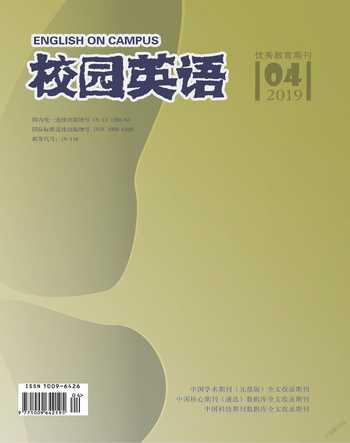Analysis of Linguistic Differences in Government Work Report Translation
【Abstract】With its rapid economic growth and deepening foreign exchanges, China has become a major player in the world. As a result, Government Work Report has become increasingly influential both at home and abroad. And its translation quality directly influences China’s international status, diplomatic relations and national images. On this basis, this paper will analyze differences between Chinese and English in the 19th CPC National Congress Report, including active and passive voice, and dynamic and static expressions.
【Key words】Government Work Report; translation techniques; linguistic differences
【作者簡介】高敏(1996.08-),辽宁大学2018级英语笔译专业硕士研究生。
Since the introduction of reform and opening-up, China has strengthened cooperation with other nations in many fields. Efficient communication is needed. Government Work Report aims to sum up the work of past years and make plans for following years, playing an indispensable role in conveying information so that foreign countries are likely to have a comprehensive understanding of the work and national conditions of the Chinese government. Therefore, China’s state image and diplomacy are determined by its translation quality.
1. Function and Language Features of Government Work Report
From the lexical level, Government Work Report is filled with formal and accurate words expressed in the way of repetition, abbreviation, and four-word structure. Syntactic level is reflected in a common Chinese sentence pattern -- Non-subject sentence. In the long sentences, “conjunctions are seldom used, but are presented vaguely.” And from the textual level, the whole report can be generally divided into three parts, the past five years, the new era and work arrangements.
2. Linguistic Differences
Differences between English and Chinese are derived from their different language families, Indo-European and Sino-Tibetan. From the perspective of linguistic morphology, English belongs to synthetic language, stressing the change of lexical form. While Chinese belongs to analytical language whose grammatical relation is expressed by function words and the transformation of word order. These differences influence translation strategies, so the translator needs to have comprehensive understandings. The following content studies two major linguistic differences to compare the Chinese and English version of the 19th CPC National Congress Report and explain translation skills.
2.1 Active and Passive Voice
The first difference lies in voice. Chinese language stresses the subject of a sentence, so it usually uses the active voice. But the passive voice is applied, more often than not, in English version in which things are expressed with objective ways. There are usually two methods to exchange the active voice for the passive voice. First, the position of subject and object in the source text are reserved in order to avoid top-heavy situation. For example, “党和国家事业全面开创新局面” is translated into “On all fronts new advances have been made for the cause of the Party and the country” In this sentence, the subject “党和国家事业” and the object “新局面” are transposed. The second method is using amplification in translation, which is suitable for a sentence without an object. For example, “党的建设制度改革深入推进,党内法规制度体系不断完善” is translated into “Further advances have been made in the reform of the institutional framework for Party building, and continuous improvements have been made to the system of Party regulations.”“further advances” and “continuous improvements” are added and put to the front.
2.2 Dynamic and Static Expressions
The second difference is dynamic and static. Dynamic descriptions and many verbs are usually existed in Chinese language in which has no change of part of speech. Whereas in English, static descriptions, such as nouns, adjectives and prepositions are usually used in it. In the process of translation, the translator should pay attention to the dynamic and static differences between English and Chinese so that the translation can better conform to codes of language of target readers. In the example of “党的建设制度改革深入推进,党内法规制度体系不断完善” , verbs like“提升”“推进”“完善” are often translated by nouns: “improvement” “advances”“ improvements”. This kind of nominalization is commonly applied in English rather than in Chinese.
3. Conclusion
The paper demonstrates that linguistic differences are of great theoretical and practical significance to analyze the English translation of the 19th CPC National Congress Report. It also provides some strategies and references for the English version of the Government Work Report.
References:
[1]趙侠.目的论三原则在科技英语翻译中的应用[J].哈尔滨职业技术学院学报,2015(06):108.

